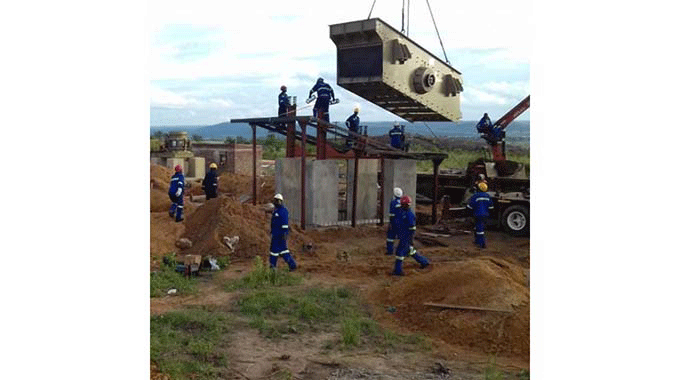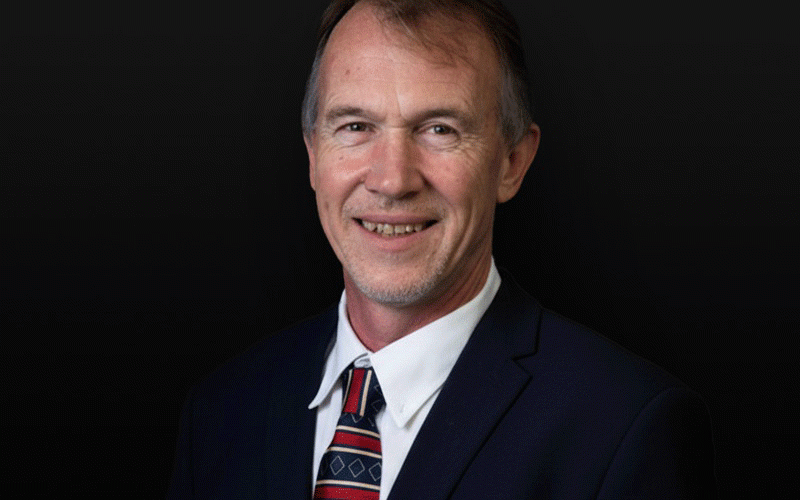
By Cynthia M Chizwina
Below is a response from BETA Concrete to a story published by The Standard on September 13, 2020 headlined “Quarry mine causes headaches in a once serene rural outpost”.
1.BETA arrived in the area two years ago, lured by the spectacular granite outcrops which promised decades of successful extraction, and immediately went on a massive extraction spree with very little regard to the environment.
BETA acquired the first claim, the 95 hectare Smart Claim, in October 2017, a second 150-hectare claim, Nashe, in March 2018 and a third claim, Swiswa B, measuring 150 hectares in December 2018..
From March to June 2018 the company was constructing an access road connecting Dendanyava Road to the Quarry site, with an EMP for the road issued in June of 2018.
Road works were contracted to Uhuru Management Contractors. From July 2018 to October 2019, the plant was being fabricated and installed with the first trial blast in December 2019.
Extraction, as claimed, only commenced in January 2020, as part of the soft commissioning.
The soft commissioning process was suspended in March 2020 in line with the nationwide Covid-19 shutdown and only resumed in June 2020.
- Chamisa under fire over US$120K donation
- Mavhunga puts DeMbare into Chibuku quarterfinals
- Pension funds bet on Cabora Bassa oilfields
- Councils defy govt fire tender directive
Keep Reading
2.The mining adventure has, however, angered the local community, which alleges that it is losing fertile agricultural land and has to cope with a severely damaged environment.
The claims acquired by BETA are primarily sitting on granite outcrops which are not farmland.
The non rocky land that was affected arose from construction of the access road and all villagers whose land was affected in this process were fully compensated in compliance with the EMP.
Evidence of the compensation agreements and payments is available for inspection.
3.The community is accusing management and the mine of failing to comply with the Mines and Minerals Act on environmental issues.
The Mines and Minerals Act does not regulate environmental issues.
Environmental issues are regulated by Environmental Management Agency (EMA) in respect of which BETA had Environmental Management Plan (EMP) and Environmental Impact Assessment (EIA) certificates issued.
BETA follows both in letter and spirit all the environmental guidelines issued by EMA as well as protocols in line with our international ISO 14001:2004 (Environmental Management Systems) certification.
4.They say they have been without clean water for the past two years because rivers were being polluted by discharge of potentially toxic chemicals.
As previously indicated, the company only started soft commissioning of the plant in December of 2019.
The only materials classified as hazardous that are used in this operation are diesel and oil.
BETA does not use any chemicals to treat crushed rock.
5.Rural settlements rarely shift positions, but Svisva village, which is closest to the mine, could be relocating to avoid being swallowed up into the earth. There is no village called Svisva.
The nearest village to the operation is Masawi village whilst the quarry is located in the Svisva Mountain Ranges.
No villager from Masawi village is affected by the relocation.
The nine residents who were identified for relocation from their current residential sites are A1 farmers who were resettled under the Land Reform programme.
These residents are being relocated to sites within the same plots of land they were resettled on, but at a distance of at least 750 metres from the quarry site under the supervision of the Ministry of Lands, Agriculture and Rural Resettlement.
6.The mine uses opencast and mountaintop removal methods in its pursuit for quarry — and seven other minerals, as specified in its operating licence.
Our mining certificates number 004244, 004253 and 309279 are for granite only and therefore there are no other minerals being extracted.
7.A range of artificial hills formed by mine dumps of quarry dust, are replacing the original landscape that now has very little vegetation growing.
The operation has a designated stockpile area for products ready for market which is approved in the siting of works submitted to Mines and Mining Development ministry.
8. Hills are being ravaged mercilessly for what they carry and some of the hills have been completely destroyed, with the miners still eating into them. And where they once stood, deep craters have taken their place.
No hills have been destroyed. There is a comprehensive environmental programme that is detailed in our EIA.
A site visit to the operation to confirm the veracity of these claims can be arranged for any interested party.
BETA is still undergoing a soft commissioning of the plant.
Only two pits have been drilled so far and these are the only pits that are being worked from.
9.As toxic chemicals used in mining and the massive land degradation increase, so has the hatred and tensions that have developed between people who support the mining project and those that oppose it.
We reiterate that the only operation at the quarry site is granite extraction and no chemicals are used in an operation of this nature.
The only materials classified as hazardous that the operation uses are diesel and oil.
10. “It’s a dreadful situation for us here,” Svisva village head Langton Masawi said as he took The Standard crew on a tour of the scarred slopes.
The village head for Masawi village is Cyril Masawi and we are not aware of who Langton Masawi is.
There is no village called Svisva. The residents in Masawi village are not affected by the blast in any way as they are out of flyrock range and also in the windward direction .
11.“When they initially came here, they told us they would employ our children, drill boreholes in the community and improve our main road, but nothing has been done yet.”
As indicated in the Q&A, the operation currently employs a total of 30 people.
Of the 30, 13 are locals. Two other locals have been employed at other BETA operations.
The rest of the jobs at the Quarry require skilled personnel, which skills are not available in the area.
The access road was constructed in 2018-19, and BETA has recently completed a 33KVa power line upgrade in the area.
Two boreholes have been sited and with the contractor Agatech Drilling scheduled to commence drilling on September 19, 2020.
12.“When we try to engage them, we are told to shut up.”
Prior to BETA starting any work in the area, engagements and consultations with stakeholders including villagers, traditional leaders and government officials were held, culminating in the EIA application.
The EIA process involved further stakeholder engagements, which are documented and minuted in the application.
Engagements remain ongoing and are convened and coordinated through the office of the district development coordinator (DDC).
There have been various meetings held to deal with specific agenda items.
These meetings are not chaired by BETA representatives, but by the relevant authorities in the area (DDC or councillor or chief).
The minutes and pictorial evidence of these meetings are available for inspection.
13.They bring workers in a minibus all the way from Harare daily. The minibus is supplied by Mr S Arufeyo, resident from ward 9 Goromonzi.
Our staff members are resident in the area, with the furthest staying in Denda village and it is these employees that are ferried to the plant from the Svisva surrounds. No workers are ferried in from Harare.
14.They said for the past two years, they have had to flee their homes on a daily basis around 6pm when mine workers start blasting the massive granite outcrops to escape from deadly flying fragments.
Blasting is not done on a daily basis.
To date, only seven blasts have been conducted, two trials in 2019 and five from January 2020.
The process of blasting entails drilling of holes five days before a blast and during this period there would not be any need for evacuations.
Also once a blast has been carried out, a 14-day period must lapse before the next blast can proceed.
Thereafter the five days for drilling is required, meaning that a minimum of 19 days must pass before the next blast.
Therefore, the claim that villagers flee their homes on a daily basis is patently untrue.
15. “Every day around 6pm, they sound the siren to indicate that blasting is about to start and we have to run at least 1km away from our homes to safety because the debris will not fly that far.”
Blasting times are regulated by Statutory Instrument 72 (64)(1)(c), which limits blasting time in quarry mining to be conducted between sunrise and sunset.
We responded to this issue in the Zimbabwe Independent Q & A as follows: There is a clearly documented blasting procedure, and whilst in terms of the regulations, homesteads must be at least 300 metres from the blast site, we take extra precautions to evacuate people, who in our view, are resident in close proximity to the blast site.
To this end, residents are notified of the intention to blast on the morning of the day of the blast.
They are given further notification 30 minutes before the blast and our staff do a door-to-door inspection to ensure that all the identified homes are evacuated.
A siren is also sounded to warn residents of the impending blast.”
16. Givemore Denga (38) showed us the corrugated iron roof of his house, which has been virtually destroyed by the debris.
The company only offered to buy three iron sheets, which according to him, have since been damaged as well.
The issue of the damage to his property was detailed in the Zimbabwe Independent Q& A.
There were two incidents and the two roofing sheets that were damaged were replaced with three roofing sheets by BETA.
We further replaced 2×20-litre buckets that were damaged with 3×20-litre buckets.
After the second incident, the blasting site was moved, and there have been no further incidents.
Mr Denga is one of the residents whose household is being relocated.
17. Chief Chinamhora, under whose jurisdiction the area falls, said he would be personally visiting the mine and instruct them to close until public safety is observed.
BETA has worked in close collaboration with the traditional leaders in the area, including Chief Chinamhora, since the inception of the project.
18. However, further investigations revealed that the company does not have relevant documentation for the particular claim, which has caused ructions in the community, but for a different claim.
This is a spurious claim, which a simple check with the Ministry of Mines and Mining Development office in Marondera would have cleared.
Further note the EIA is under renewal as it expired two weeks ago.
19. “In their initial EIA licence, the company had indicated that blasting would be confined to the western side of the mine and would do addendums if any need arose for them to blast within their vast claim area,” EMA publicity manager Amkela Sidange said.
However, the company has started operations on the eastern side, which required an addendum to address relocation issues.
This is not correct. The EIA does not stipulate a mining position.
20. Chizwina also dismissed villagers’ complaints saying their own assessments had indicated that none of them would be affected, but ironically at the same time acknowledge damages to their houses There is a deliberate misrepresentation of our response. We did not do our own assessment, the assessment was done by EMA as they are the ones who issue the EIA.
21. She also said the damage to the environment had nothing to do with her company’s operations, attributing it to the natural phenomenon of climate change.
The response quoted was in response to the question with reference “particularly to a small stream” and not in reference to the environment as a whole.
Refer to ZimInd Q & A quoted below:
Andrew Kunambura: “There are environmental concerns raised by the communities, particularly a small stream which used to be perennial, but has now dried up because of the drills.
What plans are there to reverse these damages to the environment?
Cynthia Chizwina: Climate change is a reality that is currently affecting the whole of Southern Africa.
The country is currently in the throes of a severe three-year drought, which has affected most water sources in the country.
Our claim is located downstream, and the source upstream dried up early on in the year.
In view of these challenges, BETA is currently in the process of identifying suitable borehole sites, which boreholes supply will be shared with the community.
BETA Holdings is cognisant of the environmental impact of its activities, and has an extensive environmental management programme that includes ongoing dust suppression activities, reforestation plans and long-term rehabilitation of pits into reservoirs to allow piping of water to the surrounding agricultural plots.
In view of the above, our main objection is centred on the fact that the above article imputes that BETA Concrete is a rogue outfit that is operating illegally, without licensing and has no regard for the regulations and the law.
Against this background, we therefore respectfully demand a retraction in your next publication and in a similar-size article, of the above story which is mischievous and calculated to bring our organisation into disrepute.
l Cynthia M Chizwina is the BETA Concrete commercial director











